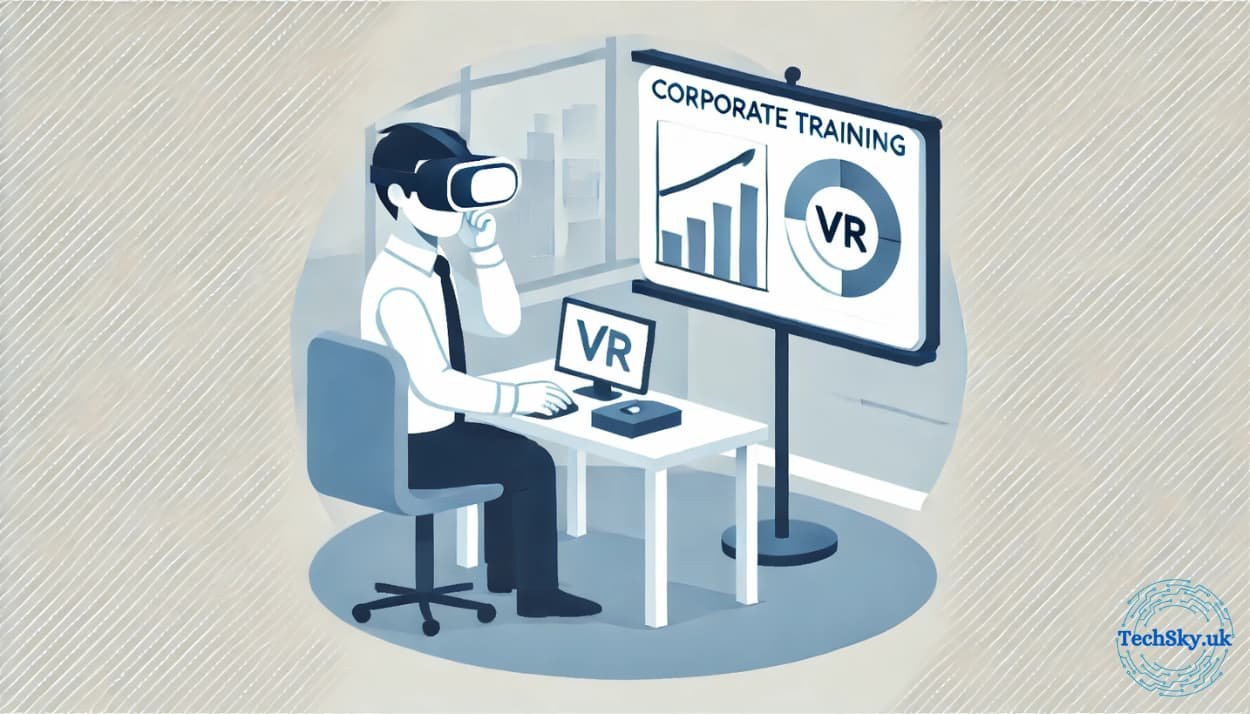Corporate training is evolving rapidly, and virtual reality (VR) is at the forefront of this transformation. By creating immersive and interactive learning environments, VR enables companies to enhance employee skills and retention rates effectively. In this article, we’ll explore how VR is revolutionizing corporate training and its key benefits for organizations.
Why VR is a Game-Changer in Corporate Training
VR provides unparalleled advantages for corporate training programs. Here’s why businesses are adopting it:
- Immersive Learning: VR places employees in realistic scenarios, improving engagement and understanding.
- Cost-Effective Training: Reduces the need for physical resources and travel, cutting overall costs.
- Safe Practice Environments: Employees can practice high-risk tasks in a controlled, risk-free setting.
These benefits make VR a powerful tool for modern corporate training programs.
How VR is Used in Corporate Training
VR is being applied in various ways to improve corporate training. Here are some examples:
- Onboarding Programs: VR can introduce new employees to company culture and workflows through interactive simulations.
- Skill Development: Employees can practice technical skills, such as machinery operation, in a virtual environment.
- Soft Skills Training: VR scenarios help employees improve communication, negotiation, and leadership skills.
These applications demonstrate how VR can cater to diverse training needs.
Overcoming Challenges in VR Corporate Training
Implementing VR in corporate training may present challenges, but they can be addressed effectively:
- High Initial Investment: Start with pilot programs to evaluate ROI before scaling.
- Employee Adaptation: Provide clear instructions and support to ensure a smooth transition to VR training.
- Content Development: Partner with VR developers to create customized training modules that align with business objectives.
By addressing these challenges, companies can unlock the full potential of VR in training programs.
The Future of VR in Corporate Training
The role of VR in corporate training is expected to grow as technology advances. Here are some trends to watch:
- Integration of AI to create adaptive and personalized VR training modules.
- Increased accessibility through affordable VR hardware and software.
- Wider adoption of VR for remote training in a globally connected workforce.
These trends highlight the potential of VR to transform corporate learning experiences.
Exclusive Insights: Companies Leading VR Training
Some organizations are already leveraging VR for exceptional training results. Here are a few examples:
- Walmart: Uses VR to train employees for Black Friday scenarios, enhancing decision-making under pressure.
- Hilton Hotels: Employs VR to teach hospitality staff how to handle challenging customer service situations.
- Boeing: Implements VR to train technicians on complex aircraft assembly processes.
These success stories showcase the diverse applications of VR in corporate training.
Did You Know?
Here are some fascinating facts about VR in corporate training:
- Companies using VR training report a 75% increase in learning retention rates compared to traditional methods.
- Over 80% of employees feel more confident in their skills after completing VR-based training programs.
These figures highlight the growing impact of VR in the corporate world.
Key Takeaways
VR is revolutionizing corporate training by providing immersive, engaging, and cost-effective learning experiences. Organizations that embrace VR can enhance employee performance, reduce training costs, and gain a competitive edge. Now is the time to explore how VR can transform your training programs.
Frequently Asked Questions
Here are answers to common questions about VR in corporate training:
- Q: Is VR training suitable for small businesses?
A: Yes, many scalable and affordable VR solutions are available for businesses of all sizes. - Q: What industries benefit the most from VR training?
A: Industries like healthcare, manufacturing, retail, and hospitality see significant benefits from VR training.
